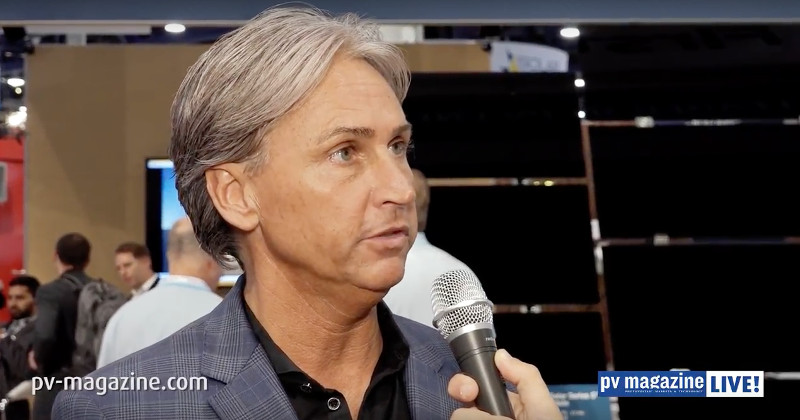Even among all the chaos that is the Trump Administration’s approach to energy and environmental policy, the Section 201 trade case instigated by Suniva and SolarWorld is the most pressing issue for the U.S. solar industry.
The case has focused on crystalline silicon solar cells and modules, and excluded thin-film products in its scope. And as it is not a party to the discussions going on, the world’s largest thin film PV module maker, First Solar, has not been a part of the heated debate over what should be done.
That is, until Wednesday, when First Solar filed a statement with the U.S. International Trade Commission (ITC) written by CEO Mark Widmar. “Some participants in this investigation have referenced First Solar for their own purposes, and I believe the Commission’s work would benefit from our perspective,” declared Widmar.
From the statement, First Solar’s perspective is that “it is possible to develop a fair and effective remedy that gives U.S. CSPV producers the relief they need without stifling solar’s effective growth”.
In making such a statement in favor of trade action, First Solar is at odds with Solar Energy Industries Association (SEIA), of which it is a member. The company further criticized SEIA’s approach, stating that it had not “engaged constructively on this issue”, by first denying that imports had anything to do with the industry’s problems, and then by proposing that action on imports be exempted from any remedy.
In fact, First Solar has firmly endorsed an explanation of the cause of these problems that SolarWorld has been making for years. According to Widmar:
“For years, CSPV import prices have been anything but rational, falling much more rapidly than could be explained by cost improvements achieved on a commercial basis. The root cause of this phenomenon has been massive CSPV overcapacity, particularly in Asia, that is inconsistent with market-based investment behavior. U.S. CSPV producers will not get the breathing space they need unless CSPV import prices rise to rational levels and this overcapacity is addressed.”
First Solar also refuted the argument that it’s business condition is an example of why “meaningful” trade action should be denied to U.S. crystalline silicon cell and module makers, with Widmar noting that the company reported an operating loss of over $500 million in 2016. In fact, Widmar notes that the decision to accelerate its Series 6 development and retooling was in response to this challenge.
SEIA, not surprisingly, disagreed.
“While we value First Solar’s membership in SEIA, we respectfully disagree with its characterization of SEIA’s engagement as well as its assessment of the impact trade relief would have on the domestic industry,” reads a statement by SEIA CEO Abigail Hopper.
“The claim that we have not engaged constructively in the trade case is demonstrably false. While we disagreed with the ITC ruling in favor of the Petitioners’ regarding injury, we nevertheless proposed a creative and constructive way to support the CSPV manufacturing industry in the United States that would benefit the Petitioners.”
“SEIA remains convinced that punishing tariffs are not the answer.”
This content is protected by copyright and may not be reused. If you want to cooperate with us and would like to reuse some of our content, please contact: editors@pv-magazine.com.



By submitting this form you agree to pv magazine using your data for the purposes of publishing your comment.
Your personal data will only be disclosed or otherwise transmitted to third parties for the purposes of spam filtering or if this is necessary for technical maintenance of the website. Any other transfer to third parties will not take place unless this is justified on the basis of applicable data protection regulations or if pv magazine is legally obliged to do so.
You may revoke this consent at any time with effect for the future, in which case your personal data will be deleted immediately. Otherwise, your data will be deleted if pv magazine has processed your request or the purpose of data storage is fulfilled.
Further information on data privacy can be found in our Data Protection Policy.